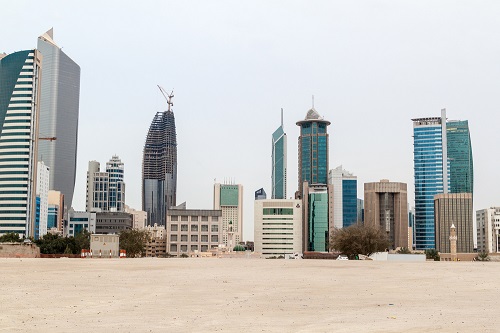Kuwait has a high standard of healthcare but is currently revising the access that expat workers and their dependants have to the public healthcare system. This is to cut down on the number of visitors using public healthcare and placing it under strain.The health authorities are building a series of new ‘Dhaman’ hospitals, which are specifically designed for expats and overseas visitors, so healthcare for expats in Kuwait is currently undergoing change. If you are resident in the country and expecting a baby, read on to learn about your options.
How to decide on a birth plan
A birth plan is a list of what you would like to have happen during labour and afterwards. It is written so that your doctor knows what your wishes and expectations are.
• Where do you want to give birth?
• Who do you want to have with you (e.g. your partner)?
• What kind of birth do you want (e.g. vaginal birth or a Caesarian)?
• Do you need any birthing aids?
• Do you want pain relief, and if so, what kind?
• What kind of birthing environment would you prefer?
Private sector maternity care in Kuwait may have more alternative facilities, such as jacuzzis and birthing balls. Expat mothers report that doctors and nurses take note of birth plans and try hard to abide by them. Make your wishes clear, and you should have relatively few difficulties.
The Royale Hayat is said to be the most natural birth friendly hospital, and expats report good experiences at Taiba. However, if you want a natural birth, make sure you discuss this with your doctor/Ob-Gyn, as attitudes vary. Nonetheless, healthcare in Kuwait is of a very high standard, and most private sector doctors are English-speaking.

The Kuwaiti Ministry of Health (MOH) is, at the time of writing, building a new dedicated national maternity facility, the Kuwait New Maternity Hospital (KNMH), within the Al Sabah Specialty Medical Area in Kuwait City. This will be a state of the art maternity facility.
There are a number of expat doulas and Lamaze specialists working in the country, some of whom run pre-natal classes and yoga sessions, but it is not common practice. You can check out the ‘Midwifery in Kuwait’ Facebook page for news of classes and updates about different birthing practices.
Home birthing is illegal in Kuwait, and midwives are not permitted to deliver babies at home. Legally, babies can only be delivered by a doctor/Ob-Gyn in a hospital.
Maternity care in Kuwait
At the time of writing, as a dependant of an expat worker in Kuwait, you should be able to access public healthcare, as long as you have a residence permit. If you are working, you may also be able to access it, but as above, the rules are changing.
Maternity charges for expatriate women registered in the health insurance system are also increasing. Non-Kuwaiti patients enrolled in the public health insurance system will now pay a fee of KD100 (US$328) for a normal delivery (a 100% increase), and C-section fees are increased to KD150 (US$492). A night in hospital will cost at least KD100 and can cost more.
It is unclear what the regulations regarding dependants will be under the new Dhaman scheme, but the authorities have indicated that the liability for a worker’s family being covered will rest on a specific employer.
Many expats in Kuwait opt for private medical insurance cover.

Note that Kuwait has many of the attitudes of a traditional Islamic country, and it must be said that the course of your pregnancy will be easier if you are married. You will not be admitted to a hospital for delivery unless you can prove that you are legally wed. You will need to provide both your own embassy and the Ministry of Foreign Affairs Annexe in Shuwaikh with proof in the form of a marriage certificate, as well as documentation in the form of your passports.
If you think you might be pregnant, your first port of call is your doctor (appointments cost in the region of KD20 and upwards). Kuwaiti doctors are keen on ultrasounds, and you might find yourself having a lot of these, in addition to the usual range of blood tests and other tests.
Your spouse will not be permitted to be with you in hospital once you have been admitted. Breastfeeding is encouraged, but once you leave the hospital, there are very few places where it is allowed in public. You should have no difficulty in finding help with the baby; it is usual for expats to hire nannies and maids.
You will need to register the birth, and you will also need a birth certificate. You can obtain this from the Central Record for Birth and Death Department of the Ministry of Health or one of its offices.
If you are pregnant, you will be entitled to paid maternity leave for 70 days. Kuwaiti Labor Law stipulates that there is no time frame after joining a company for maternity leave to apply (so you could, in theory, apply for maternity leave if you have only just joined a company).
Will the baby be a Kuwaiti citizen?
Unless the father is a Kuwaiti citizen, then your child will not be; citizenship is by descent, or you can apply as an adult.

